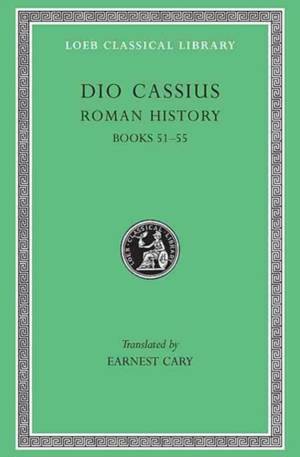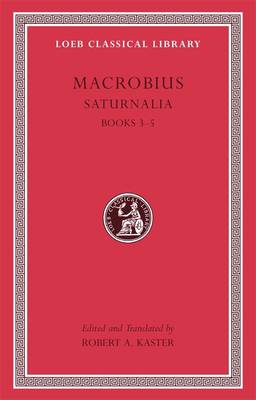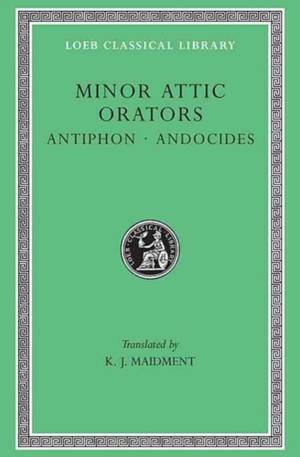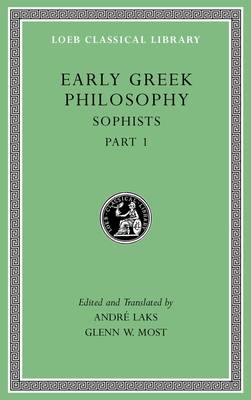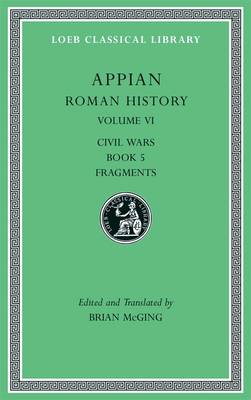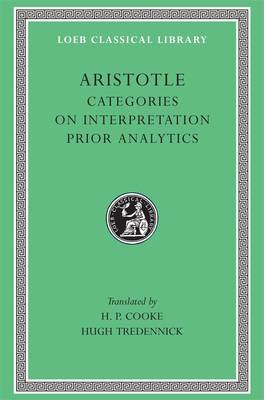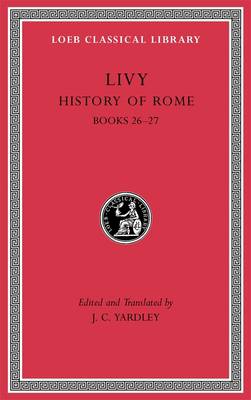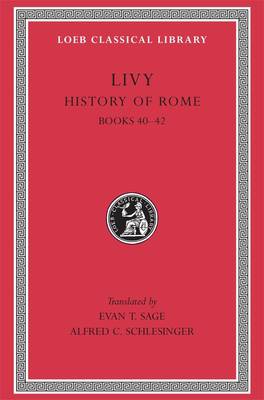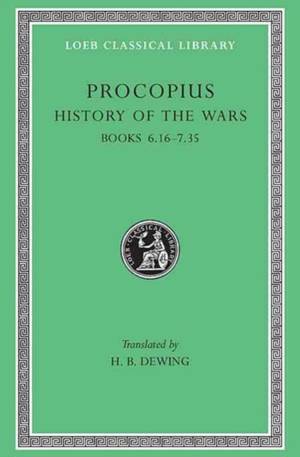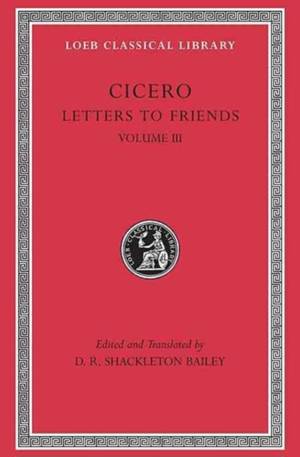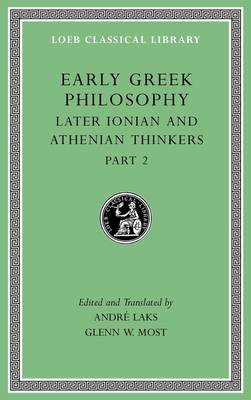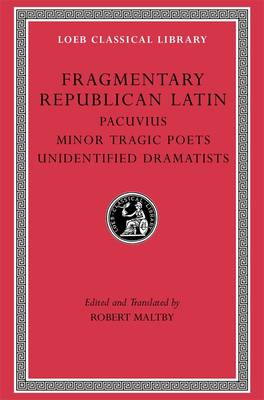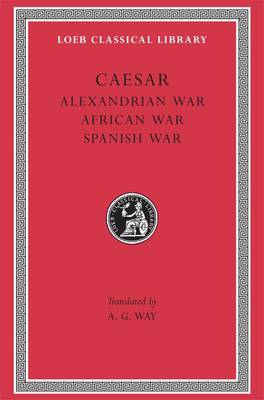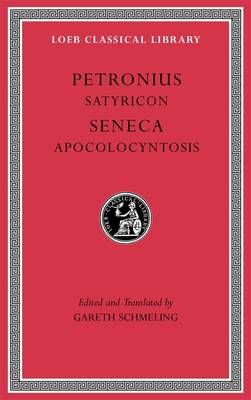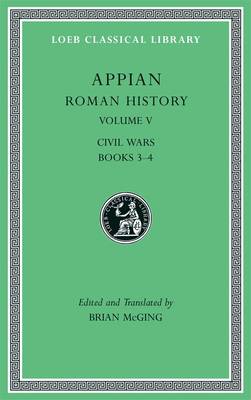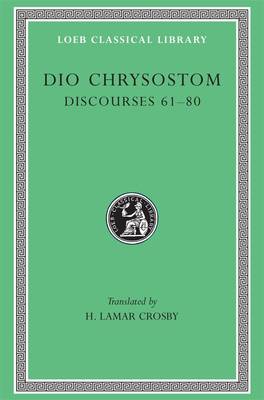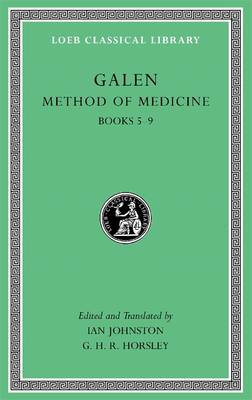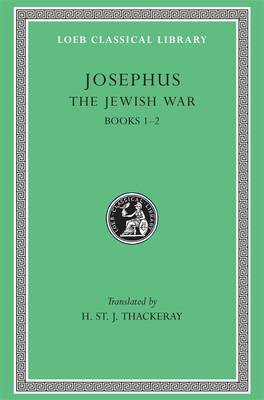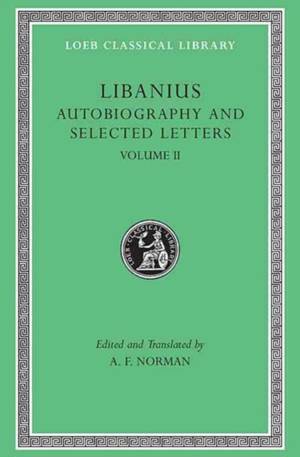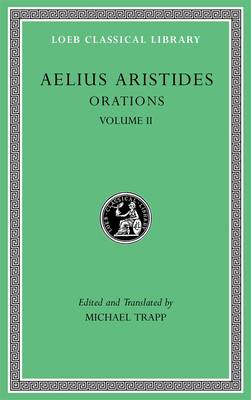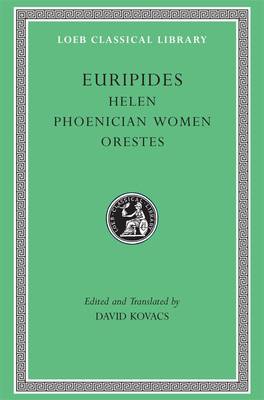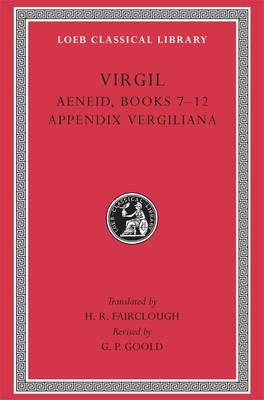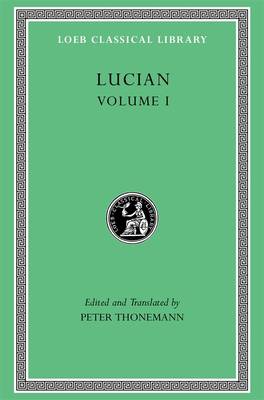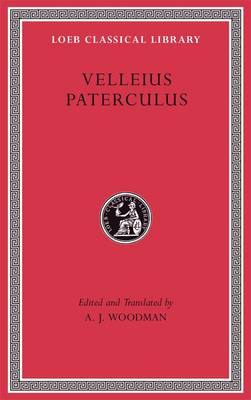
- Retrait gratuit dans votre magasin Club
- 7.000.000 titres dans notre catalogue
- Payer en toute sécurité
- Toujours un magasin près de chez vous
- Retrait gratuit dans votre magasin Club
- 7.000.0000 titres dans notre catalogue
- Payer en toute sécurité
- Toujours un magasin près de chez vous
-
Roman History, Volume VI
Dio Cassius
- Livre relié | Anglais | Loeb Classical Library
- Dio Cassius (Cassius Dio), ca. AD 150–235, was born in Bithynia. Dio’s work is a vital source for the last years of the Roman republic and the first f... Savoir plus
42,95 €Livraison 1 à 2 semaines42,95 €Livraison 1 à 2 semaines -
Saturnalia, Volume II
Macrobius
- Livre relié | Anglais | Loeb Classical Library
- Saturnalia has been prized since the Renaissance as a treasure trove of otherwise unattested lore. Savoir plus
42,95 €Livraison 1 à 2 semaines42,95 €Livraison 1 à 2 semaines -
Minor Attic Orators, Volume I: Antiphon. Andocides
Antiphon, Andocides
- Livre relié | Anglais | Loeb Classical Library
- Antiphon disliked democracy and was an ardent oligarch. Of his fifteen extant works three concern real murder cases. The others are academic exercises... Savoir plus
42,95 €Livraison 1 à 2 semaines42,95 €Livraison 1 à 2 semaines -
Early Greek Philosophy, Volume VIII
- Livre relié | Anglais | Loeb Classical Library | n° 531
- A major new edition of the so-called Presocratics. The fragments and testimonia of the early Greek philosophers (often labeled the 'Presocratics') hav... Savoir plus
32,95 €Livraison 1 à 2 semaines32,95 €Livraison 1 à 2 semaines -
Roman History, Volume VI
Appian
- Livre relié | Anglais | Loeb Classical Library | n° 544
- Rome's internal conflicts, from the Gracchi to the Empire. Appian (Appianus) is among our principal sources for the history of the Roman Republic, par... Savoir plus
42,95 €Livraison 1 à 2 semaines42,95 €Livraison 1 à 2 semaines -
Categories. On Interpretation. Prior Analytics
Aristotle
- Livre relié | Anglais | Loeb Classical Library
- Nearly all the works Aristotle (384–322 BC) prepared for publication are lost; the priceless ones extant are lecture-materials, notes, and memoranda (... Savoir plus
42,95 €Livraison 1 à 2 semaines42,95 €Livraison 1 à 2 semaines -
History of Rome, Volume VII
Livy
- Livre relié | Anglais | Loeb Classical Library | n° 367
- Rome, from the beginning. Livy (Titus Livius), the great Roman historian, was born at Patavium (Padua) in 64 or 59 BC, where after years in Rome he di... Savoir plus
42,95 €Livraison 1 à 2 semaines42,95 €Livraison 1 à 2 semaines -
History of Rome, Volume XII
Livy
- Livre relié | Anglais | Loeb Classical Library
- The only extant work by Livy is part of his history of Rome from the foundation of the city to 9 BC. Of its 142 books, 1–10, 21–45 (except parts of 41... Savoir plus
42,95 €Livraison 1 à 2 semaines42,95 €Livraison 1 à 2 semaines -
History of the Wars, Volume IV
Procopius
- Livre relié | Anglais | Loeb Classical Library
- History of the Wars by Procopius (late fifth century to after AD 558) consists largely of sixth-century military history, with much information about ... Savoir plus
42,95 €Livraison 1 à 2 semaines42,95 €Livraison 1 à 2 semaines -
Letters to Friends, Volume III
Cicero
- Livre relié | Anglais | Loeb Classical Library
- Cicero’s letters to friends span the period from 62 BC, when his political career was at its peak, to 43 BC, when he was put to death by the victoriou... Savoir plus
42,95 €Livraison 1 à 2 semaines42,95 €Livraison 1 à 2 semaines -
Early Greek Philosophy, Volume VII
- Livre relié | Anglais | Loeb Classical Library | n° 530
- A major new edition of the so-called Presocratics. The fragments and testimonia of the early Greek philosophers (often labeled the 'Presocratics') hav... Savoir plus
42,95 €Livraison 1 à 2 semaines42,95 €Livraison 1 à 2 semaines -
Fragmentary Republican Latin, Volume VII
Pacuvius
- Livre relié | Anglais | Loeb Classical Library
- Dilapidated dramas. The Loeb Classical Library series Fragmentary Republican Latin continues with Marcus Pacuvius (ca. 220-130), deemed by Cicero to b... Savoir plus
42,95 €Pré-commander, disponible à partir du 10-02-202642,95 €Pré-commander, disponible à partir du 10-02-2026 -
Alexandrian War. African War. Spanish War
Caesar
- Livre relié | Anglais | Loeb Classical Library
- Aulus Hirtius, friend of and military subordinate to Caesar (100–44 BC), may have written the Alexandrian War. African War and Spanish War are detaile... Savoir plus
42,95 €Livraison 1 à 2 semaines42,95 €Livraison 1 à 2 semaines -
Satyricon. Apocolocyntosis
Petronius, Lucius Annaeus Seneca
- Livre relié | Anglais | Loeb Classical Library | n° 15
- Two rollicking Roman satires. The Satyrica ( Satyricon liber ), a comic-picaresque fiction in prose and verse traditionally attributed to the Neronian... Savoir plus
42,95 €Livraison 1 à 2 semaines42,95 €Livraison 1 à 2 semaines -
Roman History, Volume V
Appian
- Livre relié | Anglais | Loeb Classical Library | n° 543
- Rome's internal conflicts, from the Gracchi to the Empire. Appian (Appianus) is among our principal sources for the history of the Roman Republic, par... Savoir plus
42,95 €Livraison 1 à 2 semaines42,95 €Livraison 1 à 2 semaines -
Discourses 61–80
Dio Chrysostom
- Livre relié | Anglais | Loeb Classical Library
- Dio Chrysostom (AD ca. 40–ca. 120) was a rhetorician hostile to philosophers, whose Discourses reflect political or moral concerns. What survives of h... Savoir plus
42,95 €Livraison 1 à 2 semaines42,95 €Livraison 1 à 2 semaines -
Method of Medicine, Volume II
Galen
- Livre relié | Anglais | Loeb Classical Library
- In Method of Medicine, Galen provides a comprehensive and influential account of the principles of treating injury and disease. Enlivening the detaile... Savoir plus
42,95 €Livraison 1 à 2 semaines42,95 €Livraison 1 à 2 semaines -
The Jewish War, Volume I
Josephus
- Livre relié | Anglais | Loeb Classical Library
- The major works by Josephus are History of the Jewish War, from 170 BC to his own time, and Jewish Antiquities, from creation to AD 66. Also by him ar... Savoir plus
42,95 €Livraison 1 à 2 semaines42,95 €Livraison 1 à 2 semaines -
Autobiography and Selected Letters, Volume II
Libanius
- Livre relié | Anglais | Loeb Classical Library
- Libanius, one of the last great publicists and teachers of Greek paganism, has much to tell us about the tumultuous world of the fourth century AD. Hi... Savoir plus
42,95 €Livraison 1 à 2 semaines42,95 €Livraison 1 à 2 semaines -
Orations, Volume II
Publius Aelius Aristides Theodorus
- Livre relié | Anglais | Loeb Classical Library | n° 545
- Meticulous eloquence. Publius Aelius Aristides Theodorus was among the most celebrated, versatile, and influential authors of the Second Sophistic era... Savoir plus
35,95 €Livraison 1 à 2 semaines35,95 €Livraison 1 à 2 semaines -
Helen. Phoenician Women. Orestes
Euripides
- Livre relié | Anglais | Loeb Classical Library
- Euripides (ca. 485–406 BC) has been prized in every age for his emotional and intellectual drama. Eighteen of his ninety or so plays survive complete,... Savoir plus
42,95 €Livraison 1 à 2 semaines42,95 €Livraison 1 à 2 semaines -
Aeneid, Books 7–12. Appendix Vergiliana
Virgil
- Livre relié | Anglais | Loeb Classical Library
- Virgil (70–19 BC) was a poet of immense virtuosity and influence. His Eclogues deal with bucolic life and love, his Georgics with tillage, trees, catt... Savoir plus
42,95 €Livraison 1 à 2 semaines42,95 €Livraison 1 à 2 semaines -
Lucian, Volume I
Lucian
- Livre relié | Anglais | Loeb Classical Library
- Antiquity's satirist supreme. Lucian of Samosata on the Euphrates (fl. AD 160-190) ranks among the most dazzlingly creative, virtuosic, and boldly ori... Savoir plus
42,95 €Pré-commander, disponible à partir du 27-02-202642,95 €Pré-commander, disponible à partir du 27-02-2026 -
Velleius Paterculus
Velleius Paterculus
- Livre relié | Anglais | Loeb Classical Library
- A Roman commander's comprehensive history of Rome. The histories of Velleius Paterculus chronicle the story of Rome and Roman culture from the fall of... Savoir plus
45,95 €Livraison 2 à 3 semaines45,95 €Livraison 2 à 3 semaines





